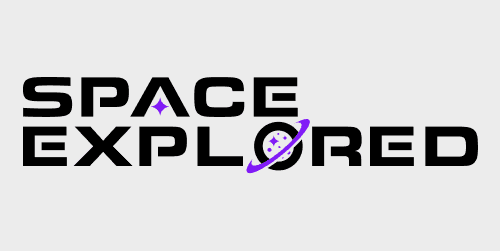
The FCC reaffirmed its rejection of a nearly $900 million subsidy to SpaceX‘s Starlink program after it determined it failed to meet certain technical and financial requirements. However, some opinions share there could be an outside motive to the way the Commission voted.
FCC denies Starlink’s appeal to 2022 decision
In a 3-2 vote down party lines, the FCC decided to reaffirm its denial of Starlink, SpaceX’s LEO satellite internet service, of a $886 million subsidy. The subsidy would have come through the Rural Digital Opportunity Fund program, which aimed to bring high speed internet to primarily rural regions of the US.
After numerous back and forths between the FCC and SpaceX through out 2022, the commission determined Starlink would not meet the required technical and financial milestones by the deadline of 2025.
The FCC used median national download and upload speed data provided by Ookla, an internet analyst firm, from 2021 and 2022 to show Starlink would not be able to meet requirements set for 2025. SpaceX disagreed with the use of the data as the requirements were not set to be in place until 2025 and it failed to take in account what could change when the company deploys more satellites over the coming years.
The FCC requires winners of bids for the Rural Digital Opportunity Fund program to provide at least 100 Mbps download and 20 Mbps upload speeds to its intended locations by 2025. Starlink, the only LEO satellite provider that won a bid, can already provide service to almost the entirety of the US, including the intended locations it won bids for. However, currently Starlink does not meet the 100 Mbps download and 20 Mbps upload benchmarks in nationwide tests while it continues to build out its network.
According to Ookla’s recent report, Starlink’s US national download speeds where 79.04 Mbps in November 2023, a year over year increase from 2022’s median of 66.26 Mbps. The company has launch nearly 2,000 Starlink satellites in 2023, many of them the new Gen 2 Mini variation with expanded performance.
Meanwhile, according to the two dissenting statements by Commissioners Brendan Carr and Nathan Simington, none of the other winners would be able to pass those requirements either, as they have not begun to provide service to their locations yet.
In a response to the FCC’s denial SpaceX stated, “[it] is deeply disappointed and perplexed,” about the decision. Later in the statement, the company’s VP of Legal claimed, “Starlink likely recorded the fastest speeds of any operator in the locations eligible for RDOF funds.”
SpaceX plans to launch as many as 200 rockets in 2024, many of which will be dedicated Starlink missions.
Join our Discord Server: Join the community with forums and chatrooms about space!
Politics playing political games?
The Commission voted 3-2 along party lines, three democrat and two republican. While Elon Musk over the decades has been on both sides of the political spectrum in his opinions, since his acquisition of Twitter in 2022, you could say he has become a rather polarizing figure.
In one of the dissenting statements by Carr about the FCC decision, he says “today’s decision certainly fits the Biden Administration’s pattern of regulatory harassment,” and “is a decision that cannot be explained by any objective application of law, facts, or policy.”
Carr points back to a moment in 2022 post-Musk’s Twitter acquisition when President Biden stated that Elon Musk’s relationships with foreign governments is “worth being looked at.” Here’s the full quote from the President:
“I think that Elon Musk’s cooperation and/or technical relationships with other countries is worthy of being looked at. Whether or not he is doing anything inappropriate, I’m not suggesting that, I’m just suggesting that it’s worth being looked at.” When another reported asked how, the President simply responded with “There’s a lot of ways.”
Whether or not this was a way for Biden to give the US Government a “green light to go after him,” as Carr has suggested, is unknown. While other investigations, like the ones we saw with SpaceX’s Starship rocket, can be seen to have obvious merit, the FCC decision doesn’t entirely add up.
While this news means that Starlink won’t get extra funds from the Federal Government to provide service to its awarded rural communities, it doesn’t mean Starlink will cease attempting to, like how fiber companies would usually do in this scenario.
In closing to its response, SpaceX said, “nonetheless, SpaceX will not let the Bureau’s and Commission’s erroneous decisions diminish its commitment to bringing high-speed, low-latency broadband service to Americans no matter where they live, work, or go to school, and SpaceX continues to stand ready to work collaboratively with the Bureau and the Commission to achieve this critically important national goal.”
FTC: We use income earning auto affiliate links. More.



Comments